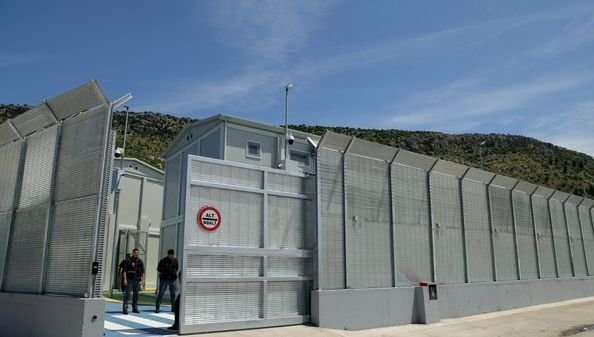Their opening has been postponed several times, but this time, “everything is ready to receive the migrants“, in the words of the Italian ambassador in Albania. Italy will even transfer the first group of migrants on Monday, October 14, to the centers it manages in this small Balkan country, a government source announced. The agreement signed at the end of 2023 between Rome and Tirana allows the disembarkation of persons rescued at sea by the Italian Coast Guard so that their asylum application can be processed on Albanian soil. So-called vulnerable people such as women and children will not be affected. These centers could accommodate 36,000 people a year.
**>> REPORTING. “It’s pure electoral propaganda”: In Albania, the detention centers for migrants built by Italy are not unanimously supported
**A center for the first steps has been built in the port of Shëngjin in the north of the country, and another twenty kilometers inland, in Gjadër, where migrants will be detained while their application for immigration is completed within by an accelerated procedure of no more than 28 days. These centers will be managed directly by the Italian authorities. The project is supported by the Albanian Prime Minister, who emphasized Albania’s special relationship with its Italian neighbor, and above all a “debt” forcing his country to respond to Giorgia Meloni’s request. Edi Rama refers to the 1990s, when hundreds of thousands of Albanians crossed the Adriatic Sea to escape the political chaos that followed the collapse of the dictatorship in Tirana.
Very critical opposition parties
The centers are ready and the two leaders show their optimism. However, there are still many questions surrounding this project, and this outsourcing of the asylum application from Italy is causing quite a bit of controversy. Some experts even doubt that the project can be implemented. In Italy, the opposition first condemns a populist project with exorbitant costs, since the scale of its implementation could reach a billion euros.
On the Albanian side, the opposition has criticized the country’s loss of sovereignty, and many NGOs such as Amnesty International are concerned about violations of migrants’ rights and non-compliance with European law. If their asylum application is rejected, their return to their country of origin raises several legal questions. The European Court of Justice has also ruled illegal the Italian government’s plan to repatriate migrants to countries that the EU does not consider to be “sure”. Despite all these uncertainties, 15 European governments called last May to draw inspiration from this Italian-Albanian agreement to find “new solutions” in the fight against illegal immigration.
